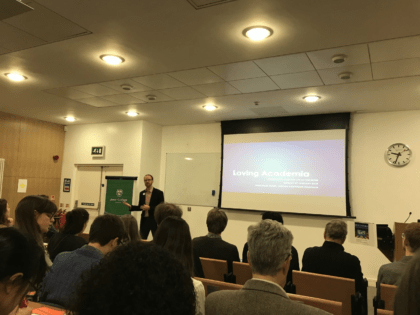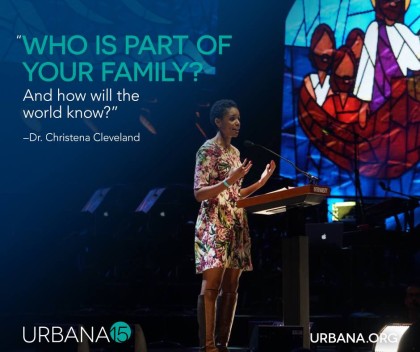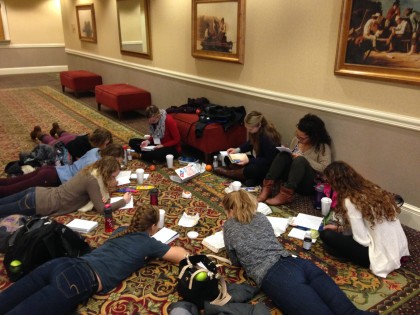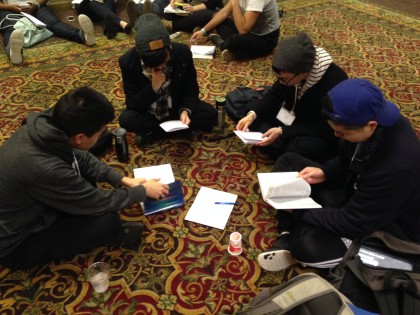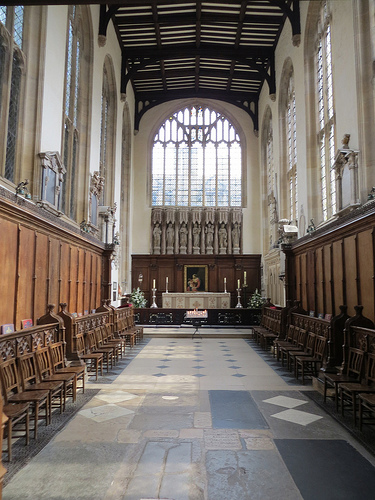David Williams, who worked for many years on Graduate and Faculty Ministry staff in North Carolina and New York City, is pursuing his doctoral studies at the University of Oxford. He's had a chance to participate in their Developing a Christian Mind Program. We are grateful for this report and hope it might encourage similar efforts among graduate students and faculty in the United States. Graduate students at Stanford have launched a similar program under this name and have opened it to other Northern California and … [Read more...] about Developing a Christian Mind–University of Oxford
The Least of these My Brothers (Matthew 25:31-46)
This is the third of a four part series of posts in which David Williams shares some historical and theological observations on the Bible passages studied at the Urbana Student Missions Conference 2015. The passages under consideration are Matthew 8:1-17, Matthew 20:1-16, Matthew 25:31-26, Matthew 27:57-28:15. In follow-up he will post an application piece. We'd also love to hear how would apply in your particular campus context. If you're at Urbana15, please swing by and hangout at the Emerging Scholars … [Read more...] about The Least of these My Brothers (Matthew 25:31-46)
The Economy of the Kingdom (Matthew 20:1-16)
This is the second of a four part series of posts in which David Williams shares some historical and theological observations on the Bible passages studied at the Urbana Student Missions Conference 2015. The passages under consideration are Matthew 8:1-17, Matthew 20:1-16, Matthew 25:31-26, Matthew 27:57-28:15. In follow-up he will post an application piece. We'd also love to hear how would apply in your particular campus context. If you're at Urbana15, please swing by and hangout at the Emerging Scholars … [Read more...] about The Economy of the Kingdom (Matthew 20:1-16)
Jesus: Lord & Servant (Matthew 8:1-17)
This is the first of a four part series of posts in which David Williams shares some historical and theological observations on the Bible passages studied at the Urbana Student Missions Conference 2015. The passages under consideration are Matthew 8:1-17, Matthew 20:1-16, Matthew 25:31-26, Matthew 27:57-28:15. In follow-up David will post stories of how the Gospel is being lived out on campus. We'd also love to hear how these texts speak to your campus context and next steps you'll take as you share the Good News … [Read more...] about Jesus: Lord & Servant (Matthew 8:1-17)
Vocatio Christ: The Contours of Our Callings Part 2 (Scholar’s Compass)
Quotation Excerpts from Learning in Wartime, by C. S. Lewis, woven throughout post. Reflection In my last post I argued that so long as Christians' talk about “finding one's calling” is held captive by the modern American idea that self-realization only happens by way of unfettered, individual self-expression, our talk of vocation will be far-removed from Christ's call to live lives of self-sacrificial love. This way of thinking about vocation is inherently self-absorbed and will, more often than not, be blind to our … [Read more...] about Vocatio Christ: The Contours of Our Callings Part 2 (Scholar’s Compass)
